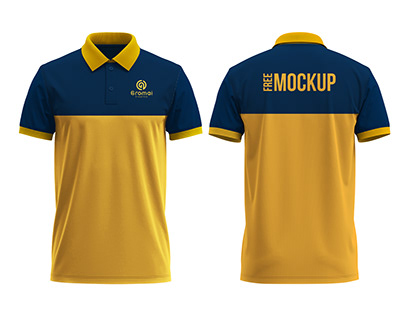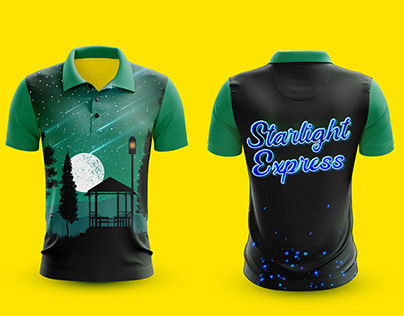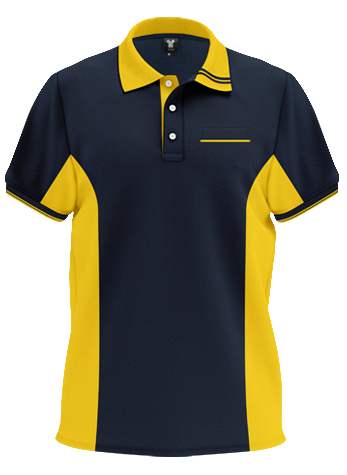In the world of business and professional environments, first impressions truly matter. While a crisp suit might be the standard for some, for many industries, the humble polo shirt stands as a versatile, comfortable, and incredibly effective uniform choice. It strikes that perfect balance between casual comfort and professional polish, making it ideal for everything from retail associates and hospitality staff to tech teams and skilled trades.
But a polo shirt isn't just a polo shirt. Its design, fabric, and branding elements can speak volumes about your company's identity, values, and attention to detail. A well-designed polo can boost team morale, enhance brand recognition, and leave a lasting positive impression on clients and customers. If you're looking to upgrade your team's look or define your company's visual identity, you've come to the right place. We've compiled 22 inspiring polo shirt design ideas that go beyond the basic, offering fresh perspectives to help your team stand out.
Why Your Business Needs a Thoughtful Polo Shirt Design
Before diving into the design ideas, let's quickly underscore why investing time and thought into your polo shirt design is crucial. It's more than just clothing; it's a strategic branding tool. A consistent, well-designed uniform fosters a sense of unity and professionalism among your team members. It makes them easily identifiable to customers, building trust and approachability. Moreover, a sharp-looking team reflects positively on your brand, conveying competence and reliability. From enhancing your company's image to providing comfortable, practical workwear, the right polo design can be a powerful asset.
Classic & Professional Polo Shirt Designs
Sometimes, sticking to the classics with a modern twist is the most effective approach. These designs focus on timeless appeal and subtle sophistication.
1. The Signature Embroidered Chest Logo
This is the gold standard for a reason. A meticulously embroidered company logo, typically on the left chest, offers a sophisticated and enduring look. Choose a thread color that subtly contrasts or perfectly matches your polo for a refined finish.
2. Subtle Sleeve Branding
For a minimalist approach, place a smaller, discreet version of your logo or a brand icon on one of the sleeves. This adds a touch of branding without overwhelming the main body of the shirt.
3. Back Yoke Text or Logo
Utilize the upper back area (the yoke) for your company name, website, or a larger version of your logo. This is particularly effective for teams whose backs are often visible, like event staff or technicians.
4. Contrast Collar & Cuffs
Introduce a pop of your brand's secondary color on the collar and/or sleeve cuffs. This simple design element adds visual interest and a custom feel without being overly flashy.
5. Tone-on-Tone Branding
For an ultra-subtle and premium look, embroider your logo in a thread color that is just a shade lighter or darker than the polo fabric itself. It’s understated elegance.
Modern & Dynamic Polo Shirt Designs
If your brand is all about innovation, energy, and a contemporary feel, these designs will help you convey that message.
6. The Sporty Color Block
Incorporate two or three distinct color panels on the polo, often across the shoulders, sides, or sleeves. This creates a dynamic, athletic look perfect for active teams or modern businesses.
7. Gradient Color Shift
A subtle fade from one color to another, either vertically or horizontally, can create a striking and unique visual effect, adding depth and modernity to the design.
8. Performance Fabric Polo
Focus on material as a design element. Opt for moisture-wicking, breathable fabrics in vibrant colors. While not a visual design per se, the feel and drape contribute significantly to the overall aesthetic and team comfort.
9. Raglan Sleeve Design
Polo shirts with raglan sleeves (where the sleeve extends in one piece to the collar, creating a diagonal seam from the armpit to the collarbone) offer a sporty, contemporary look, especially when the sleeves are a contrasting color.
10. Textured Fabric Polo
Beyond plain pique, consider polos with subtle textures like heathered finishes, micro-mesh, or even subtle patterns woven into the fabric itself. This adds a tactile and visual richness.
Industry-Specific & Functional Polo Designs
These designs prioritize practicality, durability, and specific industry needs, ensuring your team is both well-branded and well-equipped.
11. Heavy-Duty Work Polo
For trades and physical jobs, design with durability in mind. Look for reinforced stitching, stain-resistant fabrics, and perhaps a slightly looser fit for ease of movement. Branding should be robust, perhaps screen-printed for longevity.
12. Reflective Accents for Safety
For teams working in low-light conditions, integrate reflective piping along seams, on the back yoke, or around the cuffs. This combines branding with essential safety features.
13. The Utility Pocket Polo
A functional chest pocket, perhaps with a pen slot, adds a practical element for many service-oriented roles. The pocket itself can also be an ideal spot for a small embroidered logo.
14. Eco-Friendly & Sustainable Materials
Design your polo around its environmental impact. Use recycled polyester, organic cotton, or bamboo fabrics. Highlight this commitment with a small, tasteful "eco-friendly" tag or emblem on the sleeve or hem.
15. Departmental Color Coding
If you have multiple departments, assign a specific polo color to each. This helps customers quickly identify who they need to speak with and adds an organized, professional look to your entire operation.
Creative & Unique Branding Polo Designs
These ideas push the boundaries a bit further, offering distinctive ways to make your brand memorable.
16. Sublimated All-Over Print
For a truly unique statement, consider sublimation printing for an all-over design. This could be a subtle pattern, a photographic element, or a creative graphic that covers the entire shirt, offering maximum brand exposure.
17. Custom Button Placket
Don't overlook the details. Custom buttons with your logo, a contrasting color on the inside of the placket, or even a unique button configuration can elevate a standard polo.
18. Embroidered Slogan or Motto
Beyond just your logo, embroider a company slogan, mission statement, or a key value on the back or a sleeve. It’s a subtle way to communicate your brand's message.
19. The Hybrid Polo
Combine different materials or textures. For example, a knitted front with a performance fabric back, or panels of different weaves. This creates a sophisticated, multi-dimensional look.
20. Patched Emblems
Instead of direct embroidery, consider a woven or PVC patch with your logo, sewn onto the chest or sleeve. This adds a rugged, authentic, and often more tactile feel.
21. Long-Sleeve Polo for Professionalism
For a more formal or colder environment, a long-sleeve polo offers increased professionalism and comfort. Design elements like cuff style (ribbed vs. buttoned) become important here.
22. The Modern V-Neck Polo
Break away from the traditional three-button placket with a sleek V-neck polo. This offers a more contemporary, often more flattering, and slightly less formal yet still professional look.
Choosing the Right Design for Your Business
With so many options, how do you pick the perfect polo? Consider your industry, your brand's personality, your team's daily tasks, and your target audience. Think about colors that align with your brand identity and fabrics that offer the right balance of comfort, durability, and professionalism. Don't be afraid to experiment with mock-ups before committing to a large order.
Final Summary
This article explored the significant role of well-designed polo shirts in professional environments, highlighting their ability to enhance brand image, team unity, and customer perception. We presented 22 distinct polo shirt design ideas, categorized into classic, modern, industry-specific, and creative branding concepts, ranging from the timeless embroidered logo and contrast collars to innovative color blocks, performance fabrics, and unique sublimation prints. The article emphasized the importance of thoughtful design, providing practical suggestions for various job roles and brand aesthetics, and concluded with advice on selecting the ideal design by considering industry, brand identity, and functionality.




